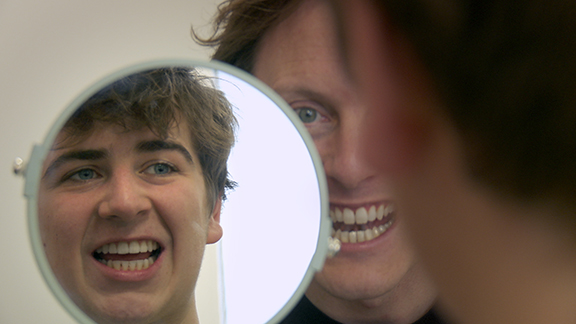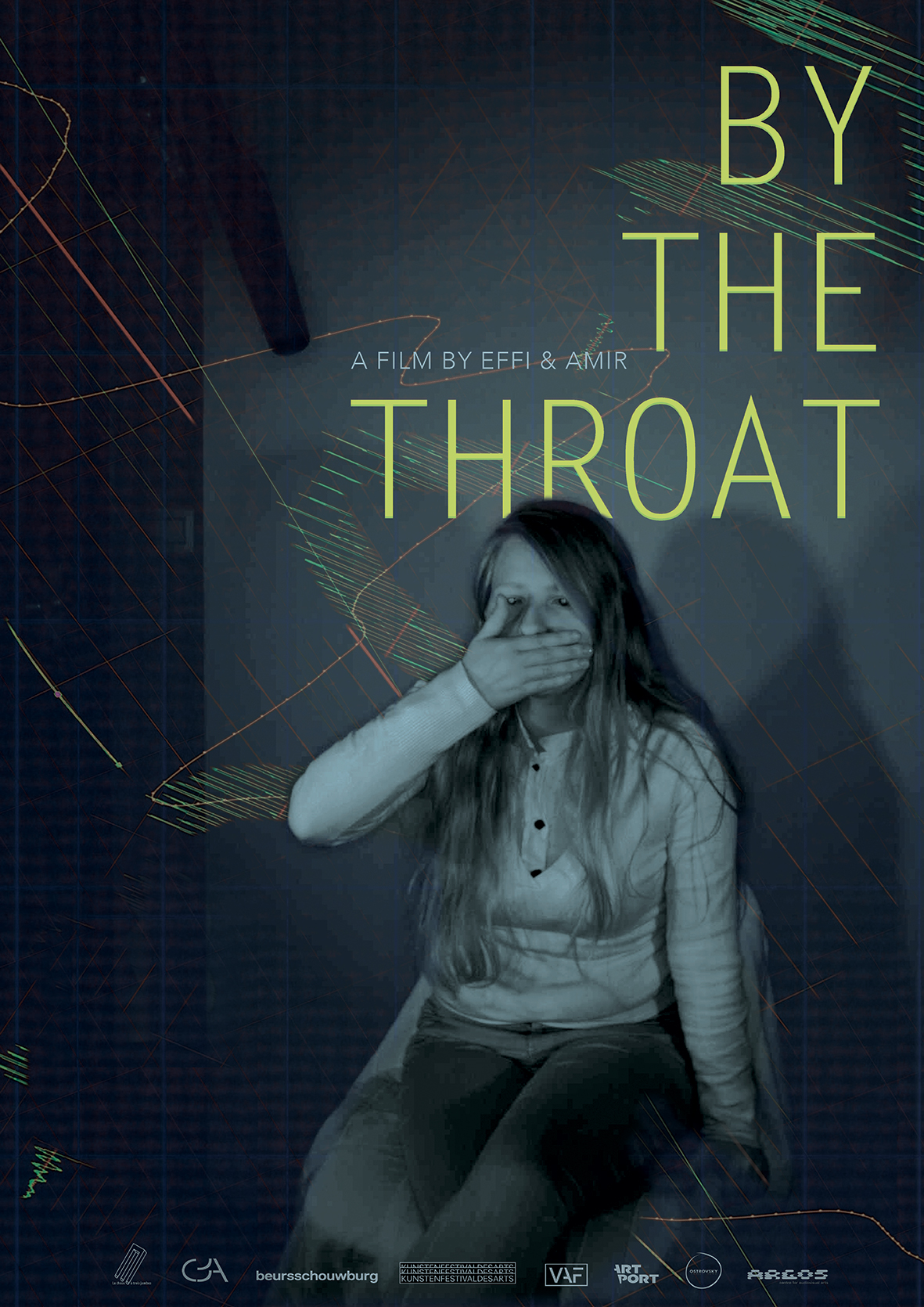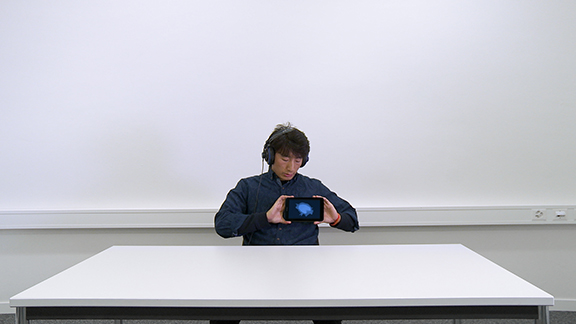By The Throat
2021 | documentary / essay-film | 78’ | AR, EN, HE, TIB, AL, DE, NL
Starting from a security check procedure at the entrance to the Tel Aviv airport, By The Throat takes us on the exploration of a more deeply engraved border, albeit an invisible one. A border that defines the sounds we can emit and the words we can pronounce. We carry with us these sonic and anatomical limits, created by our mother-tongue, becoming ourselves a mobile check-point, wherever we are.
This border becomes apparent when our speech is used by others as an identifier, when one is identified by others as being this or that, as belonging to a group or another, as forbidden to enter or allowed to pass.
The practice of using a speech feature as a means of identification of a person’s group belonging is known as “SHIBBOLETH” in reference to a biblical story where 40,000 fighters are slaughtered, after a slight difference in the way they pronounced this word revealed their identity. Shibboleth is ubiquitous and [is] performed frequently, consciously and not, officially and not, with less or more severe consequences.
Touring between territories – sonic, anatomical and political – By The Throat visits a wide range of contemporary manifestations of Shibboleth – reaching all the way to nowadays use of language tests in asylum procedure in Europe and calls into question oppressive uses of technology which reinforce binary logic and categorisation.
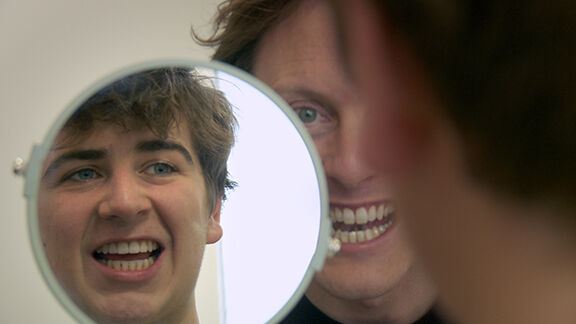
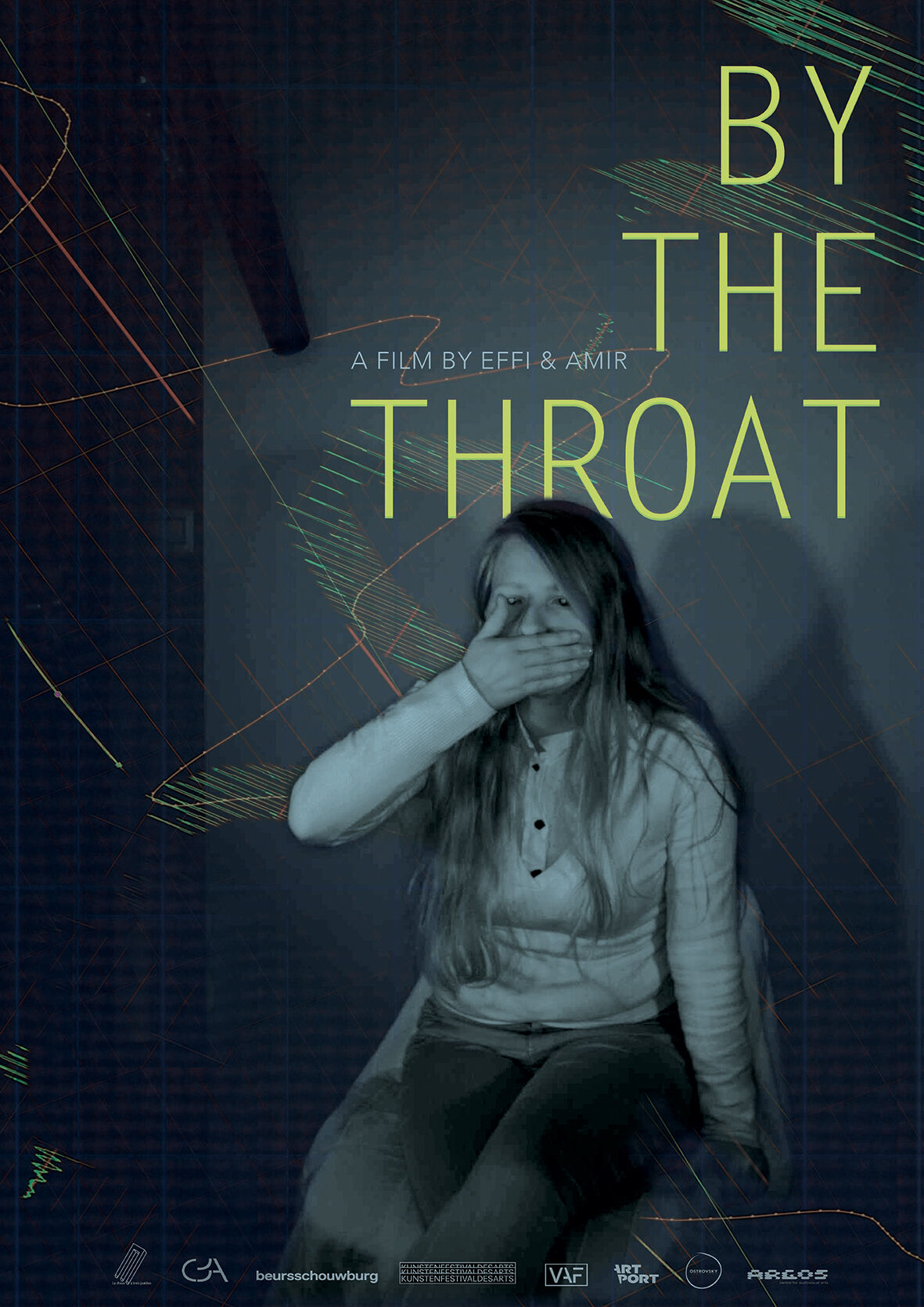
"Through a journey encompassing rigorous research and a multitude of perspectives that together form a unique cinematic language, this important and innovative film offers an original take on a pertinent contemporary issue. Foregrounding our ability to speak and how this can be used against us, the makers of this work manage to create its own distinct voice. In other words, this film grabbed us by the throat."
Jury justification - Artistic Vision Award - Depth of Field Competition, DocAviv Festival
Y’a-t-il frontières plus efficaces que celles invisibles ? Avec By the throat, un remarquable film de montage, et un travail de recherche qui fit l’objet également d’une installation en Irlande du Nord, Effi et Amir se cognent la question des murs imaginaires en prenant pour point de départ un épisode biblique devenu terme linguistique : le Schibboleh. Mot difficilement prononçable qui servit de checkpoint phonique aux Guiléadites pour reconnaître leurs ennemis en fuite, il renvoie aujourd’hui à un trait caractéristique de la parole permettant de distinguer une personne. Les cinéastes bruxellois ont collecté de nombreuses histoires de Schibboleh et mêlent témoignages, archives télévisuelles et images scientifiques pour un voyage tout aussi inquiétant que passionnant au pays des phonèmes.
Pauline David, Programmatrice, directrice du festival En ville ! (Bruxelles)
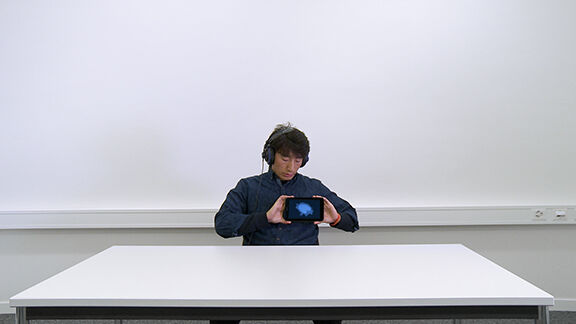
Original Music | Thomas Myrmel
Voice | Vittoria Soddu
With | Ameer Jbara
Robin Van Royen
Mark Phelan
Max Colonne
Dorina Ferrici
Tapa Rietsang
Tina Cambier-Langeveld
Maaike Verrips
Anna Biselli
Peter Patrick
Rechela
Eyal Sivan
Camera | Effi & Amir
Sound recording | Gedeon de Pauw
Kwinten Van Laethem
Farhad Katrahmani
Lancelot Hervé Mignucci
Joel Cahen
Ilona Stutz
Guido Righi
Editing | Simon Arazi
Effi & Amir
Sound editing | Kwinten Van Laethem
Mix | Rémi Gérard
Colour Grading | Miléna Trivier
Research assistance and coordination |
ARP:Brussels – Katrien Reist, Julia Reist
Ian Templeton
Roula Daoud
Diana Malaj
Julie Pfleiderer
Scientific advice and collaboration:
Prof. Bernard Harmegnies - Institut de Recherche en Sciences et Technologies du Langage, Université de Mons,
Professor Jo Verhoeven - City University of London & Antwerp University,
Naomi Miller - Antwerp University
Dr. Peter Knopp - Department of Phonetics, University of Trier
Judith Manzoni-Luxenburger - Department of Phonetics, University of Trier
Prof. Peter L. Patrick - University of Essex,
Dr Kevin Nolan - School of Mechanical & Materials Engineering, University College Dublin
Björn Doumen – Speech therapist
Katrien Eerdekens – Speech and Voice therapist, Logo+ clinic
Alain Lechien - Institut de Recherche en Sciences et Technologies du Langage, Université de Mons,
de Taalstudio, Amsterdam


